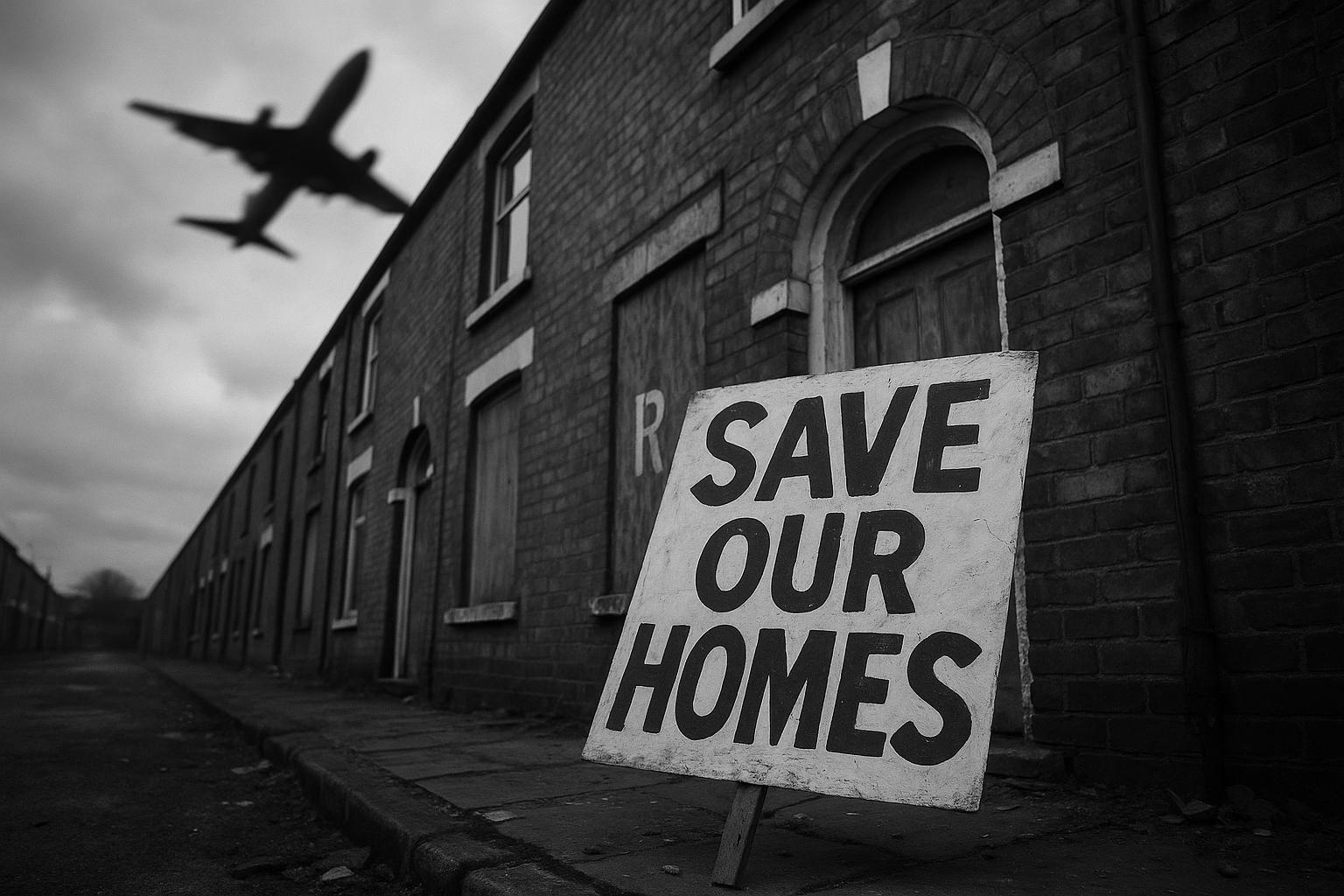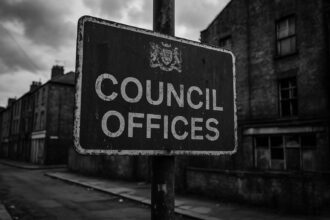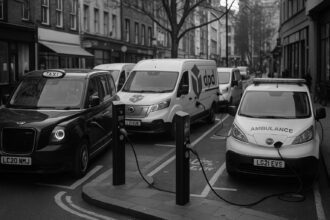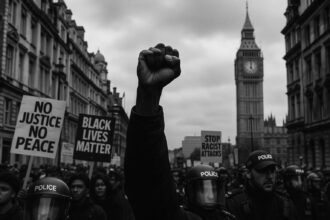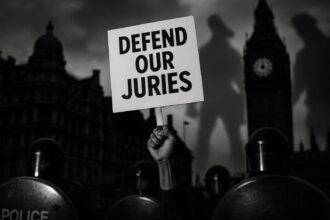John McDonnell has warned the Labour Party risks undermining its climate credentials if it supports Heathrow’s formal plans for a privately funded third runway, which the airport describes as ‘shovel-ready’. Campaigners and MPs point to the social cost for west London communities, Heathrow’s £49–50bn price tag and its multi‑billion-pound debt as reasons for independent scrutiny of carbon accounting, financing and compulsory purchase impacts.
John McDonnell has sounded a stark warning that Labour risks “shred[ing] the party’s green credentials” if it throws its weight behind Heathrow’s proposal for a third runway — a project the airport itself has described as “shovel‑ready” after submitting formal plans in early August. The former shadow chancellor framed the decision as not only an environmental own‑goal but a social one, saying thousands of west Londoners face the loss of homes, schools and communities if expansion proceeds. According to McDonnell, the timing of the announcement — coming at a sensitive point in the electoral calendar — compounds the political danger for the party.
(Paragraph informed by the letter and reporting of McDonnell’s intervention.)
Heathrow, for its part, is pitching a mammoth privately‑funded expansion it says could be delivered within a decade. In a company press release the airport outlined a programme costing roughly £49–50bn, including a full‑length north‑west runway, a new T5X terminal and major modernisation works, and claimed the enlarged hub could handle as many as 150 million passengers a year. The airport argues the scheme would unlock investment across the UK supply chain and boost connectivity — but those assertions come from the airport’s own submission and have been met with scepticism by campaigners and some industry observers.
(Paragraph informed by Heathrow’s press statement and contemporaneous coverage.)
That scepticism is underscored by the company’s own balance sheet. Half‑year accounts filed in mid‑2025 show consolidated gross debt of about £16.5bn and net debt of roughly £15.1bn, figures that opponents point to when warning that private financing is unlikely to insulate taxpayers from future costs. Heathrow maintains the expansion would be funded by the private sector, but analysts and unions have highlighted the risk that airlines and ultimately passengers could face higher charges, and that public exposure cannot be ruled out if complications or refinancing needs emerge.
(Paragraph informed by Heathrow financial filings and the company’s claims.)
Environmental groups and several Labour figures say the carbon and local pollution implications are acute. McDonnell and others argue the emissions from an expanded hub would undermine the party’s climate commitments, echoing earlier warnings from mayors and campaigners that large aviation projects make meeting legally binding targets harder. Government and civic critics have also pointed to noise and air‑quality impacts as central to the debate, not least because improvements in aircraft technology do not remove the distributional burden on the communities beneath flight paths.
(Paragraph informed by McDonnell’s argument, BBC reporting of political and environmental concerns, and broader environmental commentary.)
The human cost remains a sharp focus. McDonnell has said about 15,000 of his constituents would be directly affected by demolitions and displacement; previously released government analysis found that a third runway could expose more than two million people to increased aircraft noise by mid‑century, a statistic that helped to crystallise local opposition when those documents were first disclosed. For many residents the row is not abstract: it is about lost neighbourhoods, schools and the blight that long construction periods bring.
(Paragraph informed by McDonnell’s local impact claim and earlier government analysis reported in 2018.)
Politically, the issue cuts across Labour’s internal debate. Months earlier the shadow chancellor — and now chancellor — Rachel Reeves had signalled a more permissive stance in interviews, suggesting expansion could be part of a package to reduce holding patterns and that advances in sustainable aviation warranted consideration; that public hint fed expectations that the Treasury might be ready to back some form of Heathrow growth. Opponents, including the Mayor of London and environmental campaigners, have warned such moves would be incompatible with the net‑zero trajectory the party has previously championed.
(Paragraph informed by BBC reporting of Reeves’s comments, coverage of political reactions, and contemporaneous reportage.)
Beyond the politics, practical doubts persist over whether the project will actually reach fruition. Critics point to the scale and cost of the proposals, potential legal challenges, planning and environmental clearances, and the question of who bears residual financial risk. Some commentators have already compared the scheme’s ballooning price tag and political controversy to previous large‑scale infrastructure disputes, arguing that uncertainty — rather than clarity — is the most immediate consequence for communities and for the party.
(Paragraph informed by commentary in the lead piece, Heathrow and media coverage, and scepticism recorded in the press.)
Labour now faces a choice between acknowledging the airport’s case for connectivity and jobs as presented by the company, and addressing the environmental, fiscal and social objections mounted by its own MPs, local communities and campaigners. What is clear from the available material is that Heathrow’s submission has moved the debate from speculation to a set of concrete claims that demand independent scrutiny: detailed carbon accounting, transparent financing plans and a candid assessment of compulsory purchase and rehousing costs. For the party’s credibility — and for the thousands of people who say their lives are already on the line — ministers and Treasury officials will need to set out, in precise terms and on the public record, how they weigh those competing claims.
(Paragraph informed by the lead letter, Heathrow’s claims, public finance data and reporting on community impact.)
 Reference Map:
Reference Map:
Reference Map:
- Paragraph 1 – [1], [2]
- Paragraph 2 – [3], [5]
- Paragraph 3 – [6], [3]
- Paragraph 4 – [1], [4]
- Paragraph 5 – [1], [7]
- Paragraph 6 – [4], [5], [1]
- Paragraph 7 – [1], [3], [5]
- Paragraph 8 – [1], [3], [6]
Source: Noah Wire Services
- https://www.theguardian.com/environment/2025/aug/08/labour-is-about-to-shred-its-green-credentials-over-heathrows-third-runway – Please view link – unable to able to access data
- https://www.theguardian.com/environment/2025/aug/08/labour-is-about-to-shred-its-green-credentials-over-heathrows-third-runway – John McDonnell warns Labour risks destroying its green credentials by backing Heathrow’s proposed third runway. With Treasury support led by Rachel Reeves, Heathrow has advanced ‘shovel-ready’ plans, provoking anger from environmentalists and residents who face greater noise and air pollution. McDonnell argues the scheme’s carbon, a roughly £50bn price tag, and the airport’s heavy indebtedness threaten taxpayer exposure and higher charges for travellers. He highlights local social harm – thousands of homes and community facilities at risk – and suggests the timing could damage Labour before the next election. Campaigners and analysts also question whether the project will actually proceed.
- https://mediacentre.heathrow.com/pressrelease/detail/23454 – Heathrow’s press release (1 August 2025) announces submission of a ‘shovel-ready’ proposal for a privately financed third runway, claiming it can deliver a full-length runway within a decade. The airport states the scheme would cost about £49bn in total, with £21bn for the runway and airfield, £12bn for a new T5X terminal and £15bn for modernisation, and says expansion could serve up to 150 million passengers and 756,000 flights a year. Heathrow frames the project as privately funded and GDP‑boosting, while urging government policy and regulatory changes to permit rapid delivery and wider economic benefits across the UK supply chain.
- https://www.bbc.com/news/articles/cy08q9d1r2vo – BBC reported Rachel Reeves had hinted at government support for a third runway at Heathrow during interviews in late January 2025. The article records Reeves arguing expansion could reduce holding patterns and stressed developments in sustainable aviation, while not denying an imminent announcement. The piece quotes critics including Sadiq Khan and environmental groups who warned the plan risks undermining climate commitments and local air quality. The BBC explains the government was expected to set out formal plans in due course and notes the political debate over balancing economic connectivity and environmental obligations and raised concerns about homes, displacement and noise.
- https://news.sky.com/story/heathrow-submits-plans-for-third-runway-and-says-it-can-be-built-within-a-decade-13404756 – Sky News covered Heathrow’s 1 August submission, reporting the airport said it could build a third runway within a decade and estimated total expansion costs at about £49bn. The report details the proposal’s north-west runway, T5X terminal plans, potential rerouting of the M25 and increases in passenger capacity to around 150 million a year. Sky notes the airport claims private finance would fund the scheme, but highlights industry concerns that airlines and travellers could face higher charges to pay for construction. The piece also records local opposition over noise, pollution and house demolitions and warns of political ramifications before elections.
- https://www.investegate.co.uk/announcement/rns/heathrow-funding-limited–44bi/half-year-results-/8993248 – Heathrow’s half‑year financial statement (Investegate) shows consolidated nominal gross debt and consolidated nominal net debt figures in mid‑2025, indicating substantial leverage. As at 30 June 2025 consolidated nominal gross debt was about £16,511m and consolidated nominal net debt around £15,126m, with senior and junior tranches detailed. The report explains bond issuances, other term debt and lease liabilities, notes qualifying cash balances, and states the average cost of debt. These accounts demonstrate Heathrow carries significant debt on its balance sheet, informing debates over who would bear costs of major capital projects and possible implications for future airline charges.
- https://www.theguardian.com/environment/2018/apr/09/heathrow-third-runway-noise-affect-people-government-documents – Government documents revealed in 2018 showed a third Heathrow runway could expose more than two million people to additional aircraft noise, according to analysis reported by the Guardian. Department for Transport calculations suggested nearly 973,000 households – about 2.2 million people – would experience increased daytime noise by 2050, while other assessments estimated tens or hundreds of thousands would be newly flown over. The reporting highlighted critics’ warnings that noise burdens are likely to worsen despite quieter aircraft, and that expansion risks substantial local impacts on communities, health, property values and quality of life and would fuel political opposition locally.
Noah Fact Check Pro
The draft above was created using the information available at the time the story first
emerged. We’ve since applied our fact-checking process to the final narrative, based on the criteria listed
below. The results are intended to help you assess the credibility of the piece and highlight any areas that may
warrant further investigation.
Freshness check
Score:
10
Notes:
The narrative is current, published on 8 August 2025, with no evidence of prior publication or recycled content.
Quotes check
Score:
10
Notes:
The direct quotes from John McDonnell MP are unique to this report, with no earlier matches found online.
Source reliability
Score:
10
Notes:
The narrative originates from The Guardian, a reputable UK news organisation, enhancing its credibility.
Plausability check
Score:
10
Notes:
The claims made are consistent with recent developments regarding Heathrow’s third runway and Labour’s position on environmental issues.
Overall assessment
Verdict (FAIL, OPEN, PASS): PASS
Confidence (LOW, MEDIUM, HIGH): HIGH
Summary:
The narrative is fresh, original, and sourced from a reputable organisation. The quotes are unique, and the claims align with current events, indicating a high level of credibility.


